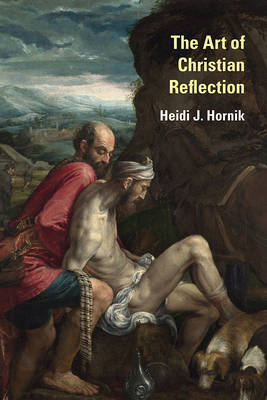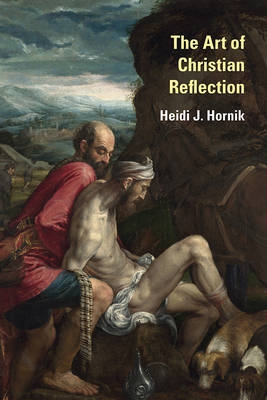
- Afhalen na 1 uur in een winkel met voorraad
- Gratis thuislevering in België vanaf € 30
- Ruim aanbod met 7 miljoen producten
- Afhalen na 1 uur in een winkel met voorraad
- Gratis thuislevering in België vanaf € 30
- Ruim aanbod met 7 miljoen producten
Omschrijving
Contemporary Christians interact with art very differently than Christians of centuries past. Christian art was never intended for mere enjoyment, but was used to express the most important features of Christian faith and to suggest models for Christian practices. In The Art of Christian Reflection, art historian Heidi Hornik reconnects art to ethics, beauty to behavior, and form to function in classical artwork.
Over eighty different pieces of art--paintings, sculptures, and architecture--are the subject of Hornik's careful analysis and commentary, which highlights the ethical implications inherent to each work. Specifically, Hornik explores how art may foster Christian virtues such as forgiveness, patience, and generosity. Hornik also discusses art's influence on moral issues such as racism, prisons, violence, poverty, and environmentalism as well as historic Christian praxes such as prayer, work, Bible study, and worship.
The Art of Christian Reflection paints the church's art as not only a courageous witness to the truth and reality of the gospel, but as an act of discipleship. It reveals the ethics of works not associated with the church but of value to contemporary Christians. Art can lead the faithful who reflect on it to become not only "hearers" and "seers" of the Word--but "doers" as well.
Specificaties
Betrokkenen
- Auteur(s):
- Uitgeverij:
Inhoud
- Aantal bladzijden:
- 272
- Taal:
- Engels
Eigenschappen
- Productcode (EAN):
- 9781481304269
- Verschijningsdatum:
- 15/10/2018
- Uitvoering:
- Hardcover
- Formaat:
- Genaaid
- Afmetingen:
- 197 mm x 229 mm
- Gewicht:
- 625 g

Alleen bij Standaard Boekhandel
Beoordelingen
We publiceren alleen reviews die voldoen aan de voorwaarden voor reviews. Bekijk onze voorwaarden voor reviews.











